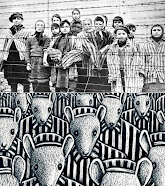Or maybe not.
There are swaths of this country where the object of public school education is no longer to educate children in public schools. Instead, they are devoted to the idea that any idea not aligned with their personal agenda is a danger to children. Obviously, the plan really is to turn kids into mindless replicants incapable of expressing critical or independent thought. They are whitewashing their brains.
See, whitewashing isn't just for walls in Tom Sawyer; whitewashing is how history is spun so kids see nothing wrong with the evils We, the People, have committed and supported. It prevents the exposure of heinous acts to young minds. (Which probably have already watched hours of DC and Marvel action movies and viewed more heinous acts than most of us growed-ups.)
Humor me for a moment. Let's talk about whitewashing. Once upon a time, it was, indeed, the stuff you slapped on a wall. Merriam-Webster's Words-At Play 2019, however, points out modern usage has taken on a life of its own, attributing that shift to Wiley Hall:
Finally, the movie makers must not be afraid to lie - especially if it makes us look good. Hollywood has been whitewashing (pun intended) history since movies were invented. (Wiley A. Hall, Afro-American Red Star, 6 Dec. 1997)
It is, as Hall notes, a sly pun on the earlier use of the verb whitewash which can refer to making something whiter, usually by applying a whitener of some sort to it (as in, “We have to whitewash the fence annually”). Whitewash can also refer to glossing over or covering up something that is immoral, illegal, or otherwise bad (as in “a book which whitewashes the country’s troubled past”), and the connotations of this particular whitewash have certainly bled over into the Hollywood whitewash.
Since the bills passed, parents across Texas have challenged books that explore issues of race, gender and sexuality. Some have read short passages about sexual assault and sexual experiences during school board meetings, saying the material is inappropriate for children. A mother in Richardson went somewhat viral after her testimony against books that included descriptions of assault and vulgar language. She later said she took issue with the titles’ information about suicide and “left wing ideology.”
I was 11 or 12 when I first came across Maus. I already loved comics quite a bit, but Maus struck me in a deeply personal way. This was one of the first serious comics I had read and it dealt with being Jewish in a profound and meaningful way. Vladek Spiegelman became a hero to me in a way because of his ingenuity and his determination to survive. I also loved the artwork. Fun fact: it was drawn using a fountain pen on standard typewriter paper. The simplicity of black and white ink has a starkness to it that seems perfectly fitting with the subject matter.The Holocaust seemed very monolithic to an 11 year old. Something that is so large and heavy that it's almost impenetrable. Maus took those events and scaled them down to the story of one man's survival in a way that became very accessible to a kid. In a way, Vladek always reminded me of Zaydie in the way he tells his story. It made everything that happened seem more personal, more "real".Misha Siegfried
Keep in mind, he's recalling from the point of view of an 11-year old boy in 1990s America. He knew Holocaust survivors; they were all around him. He saw the numbers, he heard the stories, these were part of his every-day existence. Still, the books sparked discussion; the statements above are proof there was a profound impact.
So if MAUS made the Holocaust more "real" for a kid who saw the aftermath all around him, why wouldn't anyone want a kid to encounter that reality in a pen-and-ink illustrated book? Would photographs have been better? More shocking? Yes. Scarier? Yes. Desirable for young readers? Maybe not so much.
Spiegelman's drawings are scary. This is not Feivel the Mouse in An American Tail. This is dirty, gritty, and scary. But if our kids do not, from an early age, learn that this stuff happened in real life, we are doomed to repeat it.
Banning books that deal with difficult subjects does not make them go away; it buries the hard stuff and lets it fester. Listen to Art Spiegelman talk about the banning; he's spot on.
You still have to wonder if these parents are also banning Batman, Spiderman, or Superman comics? I'm equally certain that this folks don't know/understand that Superman was born in the bedrooms of a couple of Jewish kids in 1930s Cleveland.
Winner of the Completely Inconceivable Stupidity Prize goes to Tennessee's Williamson County, for banning Sea Horse: The Shyest Fish in the Sea by Chris Butterworth. The so-called reason for disallowing elementary kids the chance to read this adorable book? It describes seahorse reproduction. This is subversive dangerous material? Really?




No comments:
Post a Comment